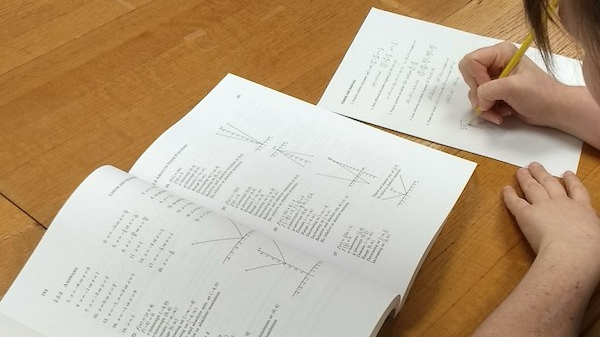The June issue of the International Review of Research in Open and Distributed Learning (IRRODL) is dedicated to Open Educational Resources (OER). Several of the studies focus specifically on OER and student learning outcomes.
In, Exploring Open Educational Resources of College Algebra, Marcela Chiorescu, of Georgia College describes a case-study in which the instructor of a hybrid college algebra course switches from commercial software and textbook after the first two semesters, to an open text and supplemental low-cost software for a semester, and then back again to the commercial content.
For the semester using OER, Chiorescu estimates students collectively saved over $13,500 – spending approximately 75% less than students using the commercial text and software. Certainly one of the main advantages of adopting OER is lowering the costs to students. However, there may be other advantages more closely tied to student success.
Analyzing the grade distribution over the four semesters, the percentage of students earning a grade of C or better was significantly higher at 84.3% for the students enrolled in the semester using OER over the previous or subsequent semesters. The percentage of students earning an A in the course was also higher for those using OER. In addition, the OER sections reported significantly fewer withdrawals.
The decision to return to commercial content after one semester was related to technical issues with the low-cost software (quizzes locking up and slow download speeds). Chiorescu was also concerned that the low-cost software was not comparable in to the commercial version, due to a “lack of resources”. To compensate for the deficiency of course materials, she developed a LibGuide to accompany the course including supplemental videos and tutorials.
In another study: The Impact of Enrollment in an OER Course on Student Learning Outcomes, Kim Grewe and Preston Davis, of Northern Virginia Community College, compared learning outcomes for students enrolled in an online history course using OER with a similar number of non-OER sections over two semesters. The study took into account student cumulative GPA and, as expected, found a correlation between prior academic achievement and student course achievement. However, an even stronger correlation was found between student achievement and OER section enrollment.
Both studies build upon previous research looking at the efficacy of OER and student achievement (Grew & Davis) finding that students enrolled in courses using OER perform as well, if not better, than students enrolled in non-OER courses. In addition, OER supported courses are more affordable and students are more likely to enroll in a higher number of credit hours per semester – and thereby, achieve their academic goals in a more timely manner.
Another subtle, but important, takeaway was the use of LibGuides to supplement OER textbooks. One of the challenges of adopting OER is that the open textbook may not include all of the supplemental materials that oftentimes accompany the commercial texts. LibGuides offer the opportunity to engage the academic librarian in the course design process and potentially improve the overall quality of OER course offerings.
References:
College Algebra, 3rd edition by Stitz C. and Zeager, J. (2013) Available at http://www.stitz-zeager.com/
CHIORESCU, Marcela. Exploring Open Educational Resources for College Algebra. The International Review of Research in Open and Distributed Learning, [S.l.], v. 18, n. 4, jun. 2017. ISSN 1492-3831. Available at: <http://www.irrodl.org/index.php/irrodl/article/view/3003/4223>. Date accessed: 26 Jun. 2017. doi:http://dx.doi.org/10.19173/irrodl.v18i4.3003.
GREWE, Kim; DAVIS, William Preston. The Impact of Enrollment in an OER Course on Student Learning Outcomes. The International Review of Research in Open and Distributed Learning, [S.l.], v. 18, n. 4, jun. 2017. ISSN 1492-3831. Available at: <http://www.irrodl.org/index.php/irrodl/article/view/2986/4211>. Date accessed: 26 Jun. 2017. doi:http://dx.doi.org/10.19173/irrodl.v18i4.2986.

Pingback: Equity, inclusion and the use of Open Educational Resources (OER) | Learning at a Distance